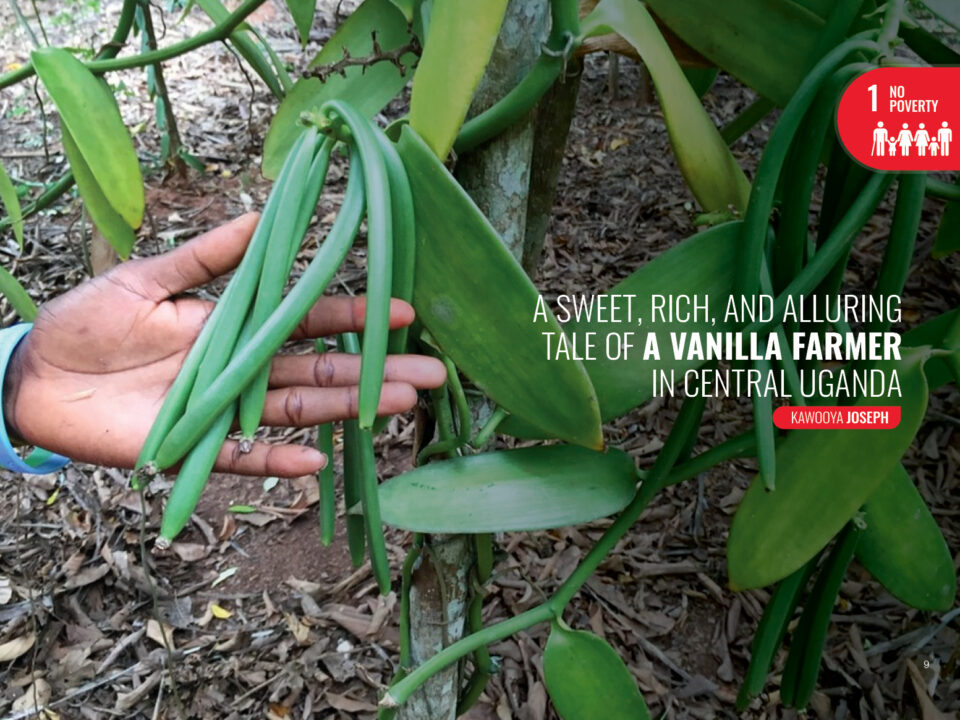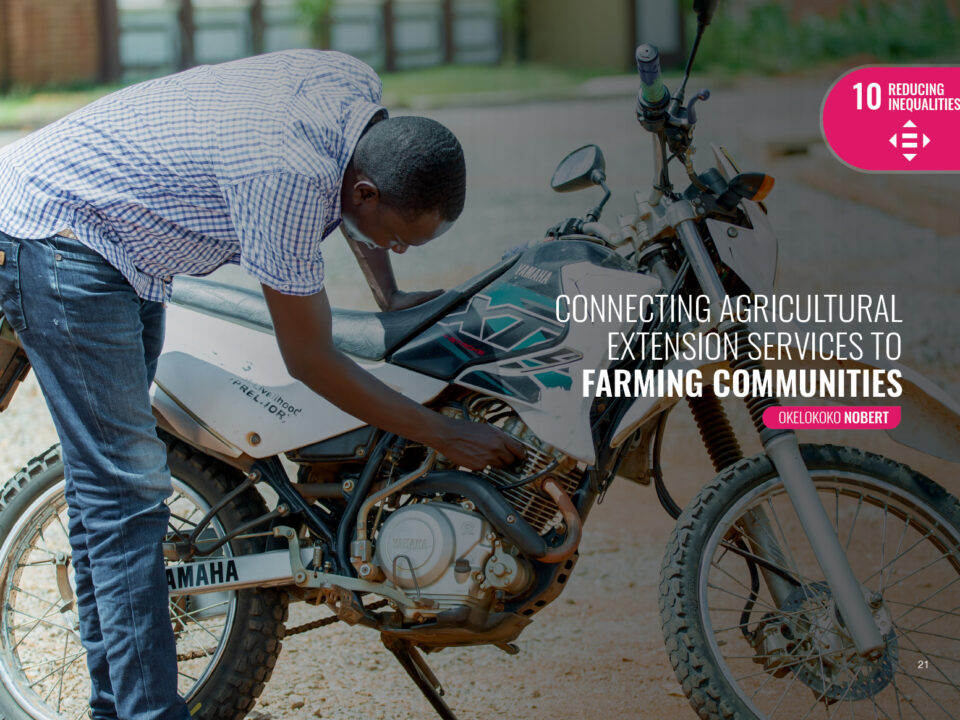Providing Alternative Affordable Protein Sources for Animal Feeds
One-third of all food produced globally is lost or wasted, resulting in an estimated $1 trillion in economic losses per year and 37 percent of its total in Sub-Saharan Africa. Despite increased efforts to increase food production, Africa has few innovative solutions to reduce food waste.
Agricultural waste offers limitless opportunities for converting “waste” into useful products that can drive innovation and create long-term jobs.
This is the story of three young Agri-entrepreneurs who are improving farmers’ animal nutrition in Africa. Earlier this year, Elias Munezero of Burundi, along with colleagues Caleb Adewale and Neema John, devised a plan to produce an alternative to the market’s current high-priced protein sources for animal feeds using agricultural waste. They founded the Goshen Maggot Farm with a focus on protein maggot production from black soldier fly larvae to enable farmers to purchase animal protein feed at a reasonable cost.
Maggots are a protein source for feeds that accelerate the growth of poultry, fish, and pigs using organic waste as a medium. In livestock feed formulation, maggots have the highest amount of crude protein of any animal or plant protein source. They are nutritious and less expensive than other animal protein feed sources. Munezero and his colleagues collect food leftovers from restaurants and mangoes that fall under trees to use in the manufacturing process. To ensure continuity, they hired a resident student at Gulu University to oversee the project, so now that they are finalists, they have decided to discontinue the project in Gulu and instead implement it in their respective home countries of Burundi, Nigeria, Tanzania, and Uganda.
Despite its short lifespan, the impact on the community and the Agri-entrepreneurs is palpable. The team has taught many farmers in Amuru and Gulu about the value of maggot protein feeds and how to use them on their farms. Because of the low cost of maggot feed, poultry and fish farmers were able to reduce their production costs. They have attended several fellowships as a result of their innovation, including the Michigan Fellows Agribusiness fellowship and the Young Innovation Leaders fellowship in Kenya.
They were able to participate in fairs at Gulu’s Peace Grounds and the RUFORUM Secretariat in Kampala. “Without TAGDev, we would not have gotten to these places,” Elias exclaimed. His team is keen to share this knowledge with their communities in their respective countries. The Goshen Farm Project won a grant at Gulu University as they submitted a proposal to the Entrepreneurship Alliance and emerged best against two other projects. They decided as a team to keep the money and invest in their home countries at a later time.
Munezero reveals that the TAGDev project has helped him improve his personal qualities.He couldn’t speak English when he arrived in Uganda because the education system in Burundi is based on French. During his studies, he was assigned a tutor who assisted him, and he is proud to say that he now has a strong command of the English language. Munezero has also gained research skills, which he did not have when he first started the program.
This initiative has not been without its challenges; they have encountered a few along the way. According to Munezero, the community has a negative perception of maggots and considers the process a dirty job. Farmers’ introduction of this feeding routine to their livestock creates a need for consistency and continuity, which has resulted in an overwhelming demand for their product. A halt in feeding has a negative impact on livestock growth, which is a major issue for farmers.
Munezero hopes to use his knowledge and experiences to become a lecturer in Burundi in a field related to Agribusiness or Agripreneurship. He would also like to establish an innovative enterprise, collaborate with other players such as veterinary students, and expand Goshen Maggot Farm in Burundi. If feasible, develop livestock feeds containing Maggot as a protein source; he believes the product has high market potential.
These Stories are a result of the documentation from the RUFORUM and Mastercard Partnership under the TAGDEV Project, Gulu University: https://ruforum.wordpress.com/category/tagdev-project/.




